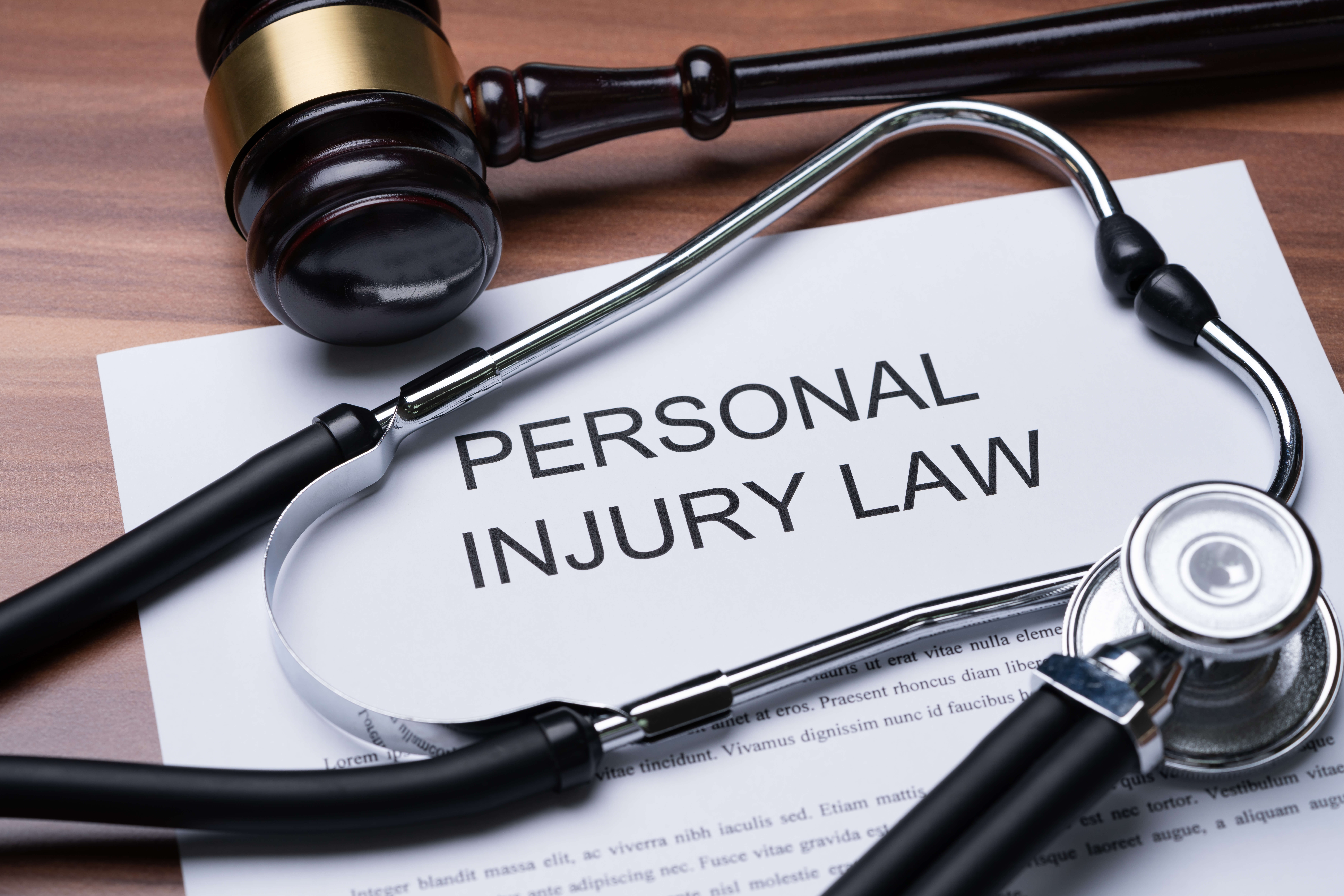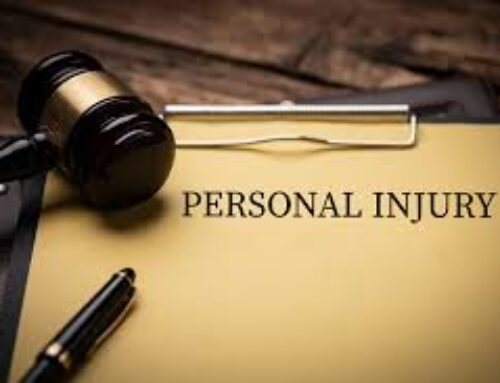Commencing this handbook, we embark on the intricate journey of electing the perfect legal counsel for your specific personal injury litigation necessities. Whether entangled in vehicular mishaps, premises mishaps, or medical malfeasance, securing adept legal representation remains paramount. Let us inaugurate by elucidating the precise role of a personal injury lawyer and the indispensable nature of engaging a proficient one.
Definition of legal practitioner for personal injuries:
A legal practitioner for personal injuries specializes in jurisprudential matters revolving around individuals who sustain physical or psychological injuries due to the negligence or malevolent acts of another entity.
Significance of engaging an adept attorney for legal quandaries:
The repercussions of a personal injury lawsuit can be far-reaching, affecting one’s health, financial stability, and overall welfare. Thus, consigning one’s case to a competent and seasoned attorney becomes imperative for maneuvering through the convolutions of the judicial system and optimizing the likelihood of a favorable adjudication.
Preview of forthcoming discourse:
Throughout this compendium, we shall delve into diverse facets of selecting a personal injury attorney, ranging from comprehending the rudiments of personal injury jurisprudence to appraising potential attorneys based on their credentials, experience, and communicative adeptness. By denouement, readers shall possess a lucid roadmap for discerning choices and procuring the legal advocacy commensurate with their entitlement.
Comprehending Personal Injury Jurisprudence
Elucidation of personal injury jurisprudence and its import:
Personal injury jurisprudence encapsulates a broad spectrum of litigations wherein individuals seek recompense for injuries sustained due to another party’s negligence or malicious deeds. This legal domain is tailored to safeguard the rights of victims and ensure culpable parties are held accountable for their actions.
Varieties of litigations encompassed by personal injury jurisprudence:
Instances of personal injury litigations may emanate from diverse scenarios, including:
Automobile mishaps:
Injuries arising from vehicular collisions, inclusive of those involving automobiles, trucks, motorbikes, pedestrians, and bicyclists.
Premises mishaps:
Injuries incurred owing to hazardous conditions on another individual’s premises, such as slippery flooring, uneven terrains, or inadequate illumination.
Medical malfeasance:
Negligent conduct or omissions by healthcare professionals resulting in harm to patients, encompassing misdiagnoses, surgical fallacies, or pharmaceutical errors.
Relevance of legal advocacy in personal injury litigations:
Navigating a personal injury litigation labyrinth can prove daunting, particularly when contending with insurance entities and procedural complexities. The presence of a proficient personal injury attorney significantly augments the prospect of securing equitable recompense for injuries, losses, and ancillary damages.
Attributes to Scrutinize in a Personal Injury Attorney
In electing a personal injury attorney, it is imperative to weigh the following attributes:
Proficiency in handling personal injury litigations:
Pursue an attorney boasting a documented history of efficaciously representing clients in akin litigations.
Tenure in the profession:
While longevity per se does not exclusively denote competence, an attorney with extensive experience likely possesses honed acumen and expertise in personal injury jurisprudence.
Record of accomplishments:
Evaluate antecedent litigation outcomes and settlements to gauge the attorney’s efficacy in procuring favorable resolutions for clients.
Specialization in personal injury jurisprudence:
Opt for an attorney whose practice predominantly revolves around personal injury litigations, as opposed to a generalist dabbling in sundry legal realms.
Prowess in communication:
The chosen attorney should possess the capacity to expound legal tenets cogently, keep clients abreast of case progressions, and promptly address inquiries.
Availability and receptivity:
Select an attorney accessible and responsive to client requisites, ensuring the provision of requisite attention and support throughout the legal odyssey.
Client commendations and testimonials:
Peruse testimonials and reviews from antecedent clients to glean insights into the attorney’s standing, professionalism, and client contentment.
Exploratory Endeavors in Identifying Prospective Attorneys
To identify prospective attorneys for your case, contemplate the ensuing strategies:
Leveraging online reservoirs:
Peruse legal compendiums, review platforms, and social media forums to pinpoint attorneys specializing in personal injury jurisprudence.
Soliciting recommendations from reliable sources:
Seek referrals to reputable personal injury attorneys from acquaintances, kin, or colleagues who have grappled with analogous circumstances.
Conducting preliminary consultations:
Arrange consultations with multiple attorneys to deliberate upon your case, assess their qualifications, and ascertain compatibility.
Evaluating the attorney’s modus operandi vis-à-vis your case:
During consultations, discern the attorney’s attentiveness to your concerns, proficiency in eliciting pertinent information, and delineation of prospective case strategies.
Scrutinizing Attorney Remunerations and Financial Framework
Before committing to legal representation, apprehend the attorney’s fee modalities and financial frameworks:
Understanding remuneration modalities:
Attorneys customarily levy fees under one of the ensuing structures:
Contingency fees:
The attorney’s remuneration hinges on the favorable culmination of your case, customarily quantified as a fraction of the settlement or adjudication.
Hourly tariffs:
Clients are billed for the attorney’s temporal expenditure on their case, conventionally at a prearranged hourly rate.
Retainer accords:
Clients remit a predetermined fee upfront to secure the attorney’s services, with supplemental charges accruing as the case progresses.
Transparency in billing protocols:
Assure that the attorney furnishes perspicuous and comprehensive explications of their fee framework, encompassing any ancillary costs or disbursements.
Inquiring regarding ancillary expenditures:
Inquire about prospective ancillary costs, such as litigation filing fees, expert witness remunerations, or administrative overheads, to preclude unforeseen financial encumbrances.
Merit of Indigenous Representation
When electing a personal injury attorney, contemplate the merits of enlisting a local attorney conversant with your locale:
Advantages of retaining a local attorney:
A local attorney boasts familiarity with local statutes, adjudicatory procedures, and adjudicators, conferring upon them a strategic edge in litigating your case.
Familiarity with indigenous statutes and procedures:
Local attorneys possess nuanced comprehension of state and local ordinances governing personal injury litigations, thereby ensuring efficacious and expeditious case management.
Convenient access for consultations and adjudicatory appearances:
Proximity to a local attorney facilitates facile access for consultations, conferences, and courtroom appearances, mitigating logistical impediments and delays.
Concluding Your Determination
After meticulous deliberation and exhaustive exploration, it behooves one to finalize their determination:
In conclusion, it cannot be overstated how crucial thorough research and careful consideration are when selecting a personal injury attorney. Your choice in legal representation can significantly impact the outcome of your case and the compensation you receive. By taking proactive steps to find a skilled and experienced attorney, you can ensure that your rights are protected and that you receive the best possible legal representation. Don’t hesitate to reach out to qualified attorneys, gather information, and make an informed decision to secure the representation you deserve for your personal injury case.





